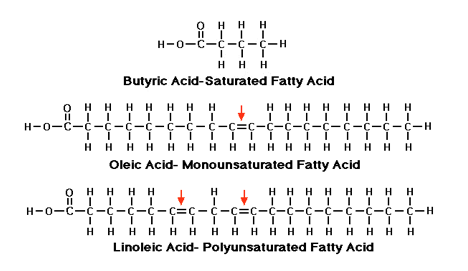I’m sure you’ve heard of Omega 3 fatty acids – I’d say everyone has. What you might not know, however, is what they are, where we get them from and why they are so important for our health. In my opinion Omega 3 fatty acids are the most important nutrient that we should be trying to source in our diet. But for some of us it isn’t that easy.

Before I start with the fun stuff…
I’d like to first explain what fats are. It will help to give you an appreciation of why some fats are so important. There are 2 broad types of fat – saturated and unsaturated. A saturated fat is a fat that has hydrogen atoms attached to every carbon along the long chain of carbons that make up a saturated fat. An unsaturated fat is a fat that has a very similar chemical structure but one that has some of the carbons in the chain connected via double bonds. This double bond connection means that hydrogen cannot attach to the carbon at this point and leaves the fatty acid not saturated with hydrogen – in other words unsaturated. Please do not get too confused, however please refer to the image below for a visual explanation.

We find saturated fats in lots of places – but mainly in animal products and by this I mean meat and dairy derived foods with coconut being an excellent source as well and coconut consumption is strongly advised for vegans and vegetarians. Saturated fats are not the terrible dietary danger that we have long been told they were and are actually critical for our overall health and absolutely should not be avoided. Saturated fats are usually easy to see because they are solid at room temperature – picture the fat on a piece of meat or the skin inside a coconut. Saturated fats are good for us because they form the precursors to many hormones in the body, cholesterol (which is not bad for us) and are the most dense form of energy that we can consume.
Monounsaturated fats are found almost exclusively in nuts and vegetables. The best sources of monounsaturated fats are found in avocados, nuts and seeds as well as some vegetable oils and when isolated they are usually liquid at room temperature. Monounsaturated fats are important for our health as they help to carry many of the fat soluble vitamins (A, D, E and K) and can help to modulate our cholesterol levels, ensuring that we are creating more of the dense type of cholesterol that tends to protect us from heart disease and stroke.
The Omega 6 Group
Now, the topic of the article, polyunsaturated fats. There several types of polyunsaturated fats, however I will mention only 2 with the main focus on Omega 3. The other type of polyunsaturated fat that I will discuss is the Omega 6 group.
Omega 6 fatty acids are found mainly in cooking oils and this is where we tend to get the majority of our Omega 6 fats from. These fats are important for many pro-inflammatory responses in the body and though consuming something that increases inflammation might sound strange, our body’s need inflammatory signallers to help with growth and repair of tissues. The problem arises when we have too many of these signallers and the inflammatory signal is too strong – which tends to be the problem for the majority of us. Ideally the ratio of Omega 6 to Omega 3 should be between 5 to 2:1. So for every 5 to 2 grams of Omega 6 we consume we should consume 1 gram of Omega 3. Unfortunately, due to the nature of most Western food preparation methods and our lifestyles, we consume a roughly 20-1 ratio. And that is a problem. It is thought that many of our chronic inflammatory conditions might be exacerbated by this imbalance. So how do we fix it?
The Omega 3 Food Your Body Needs
Omega 3 fatty acids are found in large amounts in seafood, algae and some nuts and seeds. However, by far the best source of Omega 3 is found in fish and algae as this type of Omega 3 is the most useable by our body. Oily fish such as sardines, mackerel and wild salmon are the best sources, though for the vegans and vegetarians amongst us chia, flax and walnuts are the best non-animal sources. Omega 3, among many other functions, is a system anti-inflammatory signaller. As you can hopefully see it can act to oppose the inflammatory signals that Omega 6 will command – the yin to the Omega 6 yang! It is also critical in the promotion of good cholesterol production, the function of our cells and brain. Without enough Omega 3 in the diet we will simply not function at our best, so in order to improve our health and sense of wellbeing we should all aim to eat fish at least 3 times per week. If you are a vegetarian or vegan than you should be consuming an algae or seaweed everyday as well as a serve of chia, flax or nuts.
Balancing out these ratios will have you feeling better, performing better and being better!
Yours in health!



